 IT is a fast moving industry. Heinz Kabutz says that "we are in an industry with a knowledge half-life of at most 18 months. [...] Half of what you knew 18 months ago is worthless today, so you need to keep learning new things." We need to learn a lot, fast and continuously. Today even traditional companies recognise the need for professional development, also - or especially - for senior and expert level employees. (I could argue that senior tech people need more training than junior ones, because their time of dedicated learning in school or university has been longer ago, but I am digressing.) All companies I have seen, offered five days of professional training by year. (Unfortunately, not all employees take the opportunity to use this training budget, but that is another story.) A few companies have a stronger focus on self-development. For example the Swiss Zühlke Engineering offers ten days of professional training. (At least they did in the past, as confirmed by several Zühlke employees I met.)
IT is a fast moving industry. Heinz Kabutz says that "we are in an industry with a knowledge half-life of at most 18 months. [...] Half of what you knew 18 months ago is worthless today, so you need to keep learning new things." We need to learn a lot, fast and continuously. Today even traditional companies recognise the need for professional development, also - or especially - for senior and expert level employees. (I could argue that senior tech people need more training than junior ones, because their time of dedicated learning in school or university has been longer ago, but I am digressing.) All companies I have seen, offered five days of professional training by year. (Unfortunately, not all employees take the opportunity to use this training budget, but that is another story.) A few companies have a stronger focus on self-development. For example the Swiss Zühlke Engineering offers ten days of professional training. (At least they did in the past, as confirmed by several Zühlke employees I met.)Obviously ten days are twice as much as five, but I believe we need more. A few companies allow Research or Lab Fridays from time to time, following the idea of 20% time, made famous by Google Friday. While slack at work is focusing on innovation, the time is also available to learn. In the end, exploring new ideas is related to both. One of my clients runs a "Basteldonnerstag" once a month, which adds another ten days. sipgate runs Open Fridays every second week. So we are up to 20 or even 30 days for your professional development each year, I like that.
My Personal Development
As Code Cop I am working with my clients on different things. Some clients use technologies I have never seen before. Still my goal is to help them to improve. It could be as simple as writing unit tests with a xUnit styled testing framework - or as alien as modularising a legacy application written in an old, purely procedural language.
I learn a lot and need to learn more. I am conscious of the time I spend on learning. I think about learning methods and try different approaches, e.g. flash cards. I am still performing code katas, on my own and together with others.
2016
When reflecting about last year, I think that I could have done better. I had interesting work and got a lot of new experience, but I did not attend all training that seemed necessary and I did not visit as many conferences as I needed to visit. I worked full time and had to squeeze in the occasional learning. Out of curiosity I counted the days spent on learning last year. I was very surprised when I found 33 full days spent on professional training:
- 9 days of conference presentations. Last year I attended 5 traditional conferences, e.g. GeeCON, full of great talks and coding demos.
- 6 days of classic training like training courses or workshop days before conferences.
- 2 days of unconference sessions. Unconferences like SoCraTes are less structured than traditional conferences and enable discussion and deliberate discovery of new ideas. Usually I am hooked up with a new topic after attending.
- 9 days of personal workshops. These include Journeyman Visits, Code Camps and meeting with other people to work on a research topic for a whole day.
- 2 Coderetreats. While some unconferences include Saturdays, Coderetreat happens on Saturday by design. I am attending them rarely because usually I am facilitating them.
- approximately 5 days of pair programming practise. I remember 18 sessions either remote pair programming or attending Coding Dojos. Usual sessions last 2 to 2.5 hours.
After seeing these numbers, I am impressed with myself. ;-) 33 days are a lot, and one third of them was spent on evenings and weekends.
Previous Years
So 2016 was a good year for my personal learning. How about the previous years?
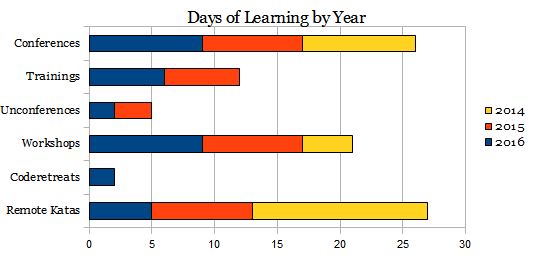
2015, shown in the orange bars, is pretty similar to last year (blue bars). Surprisingly I spent 33 days on professional development, too: one workshop less and no Coderetreats, instead more remote pairing sessions. In 2014, shown in yellow bars, I fell a little short. I did not attend any training or unconferences and did fewer workshops. Becoming independent enabled me to visit (paid) training and I just discovered the opportunity of unconferences and workshops back then. Still I had more than twice as many pairing sessions, summing up to 27 days of professional development.
Conclusion
While I felt bad about my personal learning earlier, these numbers satisfy me. 33 days sounds much and I am starting to pride myself on them. I have no way to compare, I know people who attend at least one conference each month, which already sums up to 24 days at least. So maybe 33 days are not that many after all. So I might/ should/ could do more (MOAR PROFESSIONAL DEVELOPMENT!!1!), but I am pretty sure that I will not. I did not aim for 33 days in the past and I will not do so now. I am very busy, both with my work and my major ongoing side project. On the other hand, this year was full of opportunities and I already spent 12 days professional training in the first quarter.
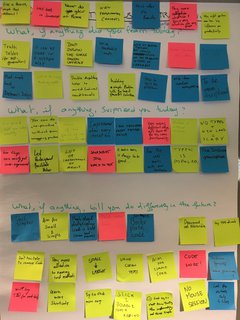

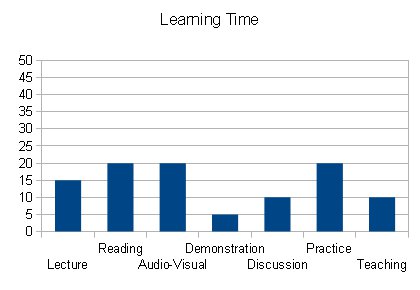
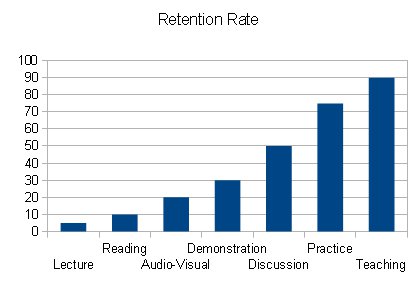
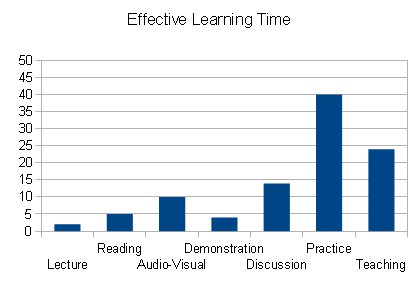
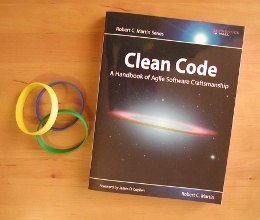 Dear team,
Dear team,

![[The Pragmatic Programmer: From Journeyman to Master cover]](http://www.code-cop.org/images/books/book_pragmatic.jpg)
![[UML Distilled: A Brief Guide to the Standard Object Modelling Language cover]](http://www.code-cop.org/images/books/book_uml.jpg)
![[Design Patterns: Elements of Reusable Object-Oriented Software cover]](http://www.code-cop.org/images/books/book_patterns.jpg)
![[Refactoring: Improving the Design of Existing Code cover]](http://www.code-cop.org/images/books/book_refactor.jpg)
![[Test Driven Development: By Example cover]](http://www.code-cop.org/images/books/book_testdriven.jpg)
![[Mastering Regular Expressions cover]](http://www.code-cop.org/images/books/book_regular.jpg)
![[Thinking in Java cover]](http://www.code-cop.org/images/books/book_thinking.jpg)
![[Effective Java Programming Language Guide cover]](http://www.code-cop.org/images/books/book_effective.jpg)
![[Java 2 Performance and Idiom Guide cover]](http://www.code-cop.org/images/books/book_idiom.jpg)
![[Java Performance Tuning cover]](http://www.code-cop.org/images/books/book_performance.jpg)
![[Java Puzzlers cover]](http://www.code-cop.org/images/books/book_puzzle.jpg)















